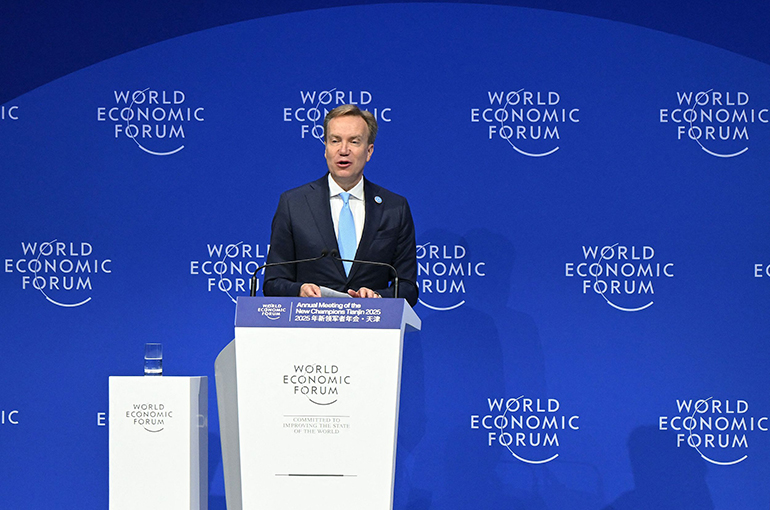 Summer Davos in China's Tianjin Draws Record 1,800 Attendees
Summer Davos in China's Tianjin Draws Record 1,800 Attendees(Yicai) June 25 -- Around 1,800 participants from 90 countries and regions are at the World Economic Forum's 16th Annual Meeting of the New Champions, also known as the Summer Davos, in the Chinese city of Tianjin, a record-high number of attendees.
Under the theme "Entrepreneurship for a New Era," this year's three-day meeting, which kicked off yesterday, will focus on cutting-edge insights across five key areas: Deciphering the World Economy, Outlook on China, Industries Disrupted, Investing in People and the Planet, and New Energy and Materials. China's economic future is a crucial focus of the forum.
"Artificial Intelligence +" is a major breakthrough for future economic growth, particularly in China, said Zhu Min, senior expert at the China Center for International Economic Exchanges. Productivity remains paramount, and enhancing labor productivity is key, Zhu added.
"Current policies strongly emphasize integrating quantity and quality because only this combination can deliver profitable and sustainable development," Zhu noted.
Boosting consumption capacity among low-income groups remains urgent, Liu Shijin, Chinese chief advisor to the China Council for International Cooperation on Environment and Development, told Yicai, adding that this is also his top focus in the 15th Five-Year Plan.
While goods consumption requires improvement, service consumption, especially "developmental consumption in education, healthcare, subsidized housing, social security, and elderly care, is key to enhancing overall consumption capacity," Liu pointed out.
Amid significant global economic uncertainty, many economists acknowledged China's resilience.
"Uncertainty" is this year's theme, with global economic activity slowing, though China and some other nations are showing strong export performance, noted Paul Gruenwald, chief economist at S&P Global Ratings.
China's economy remains robust, with its economic growth expected to stay above 5 percent in the second half of this year, said Huang Yiping, dean of the National School of Development at Peking University. More proactive fiscal policies are needed in the near term while ensuring long-term fiscal sustainability to navigate global uncertainties, Huang noted.
Editor: Martin Kadiev